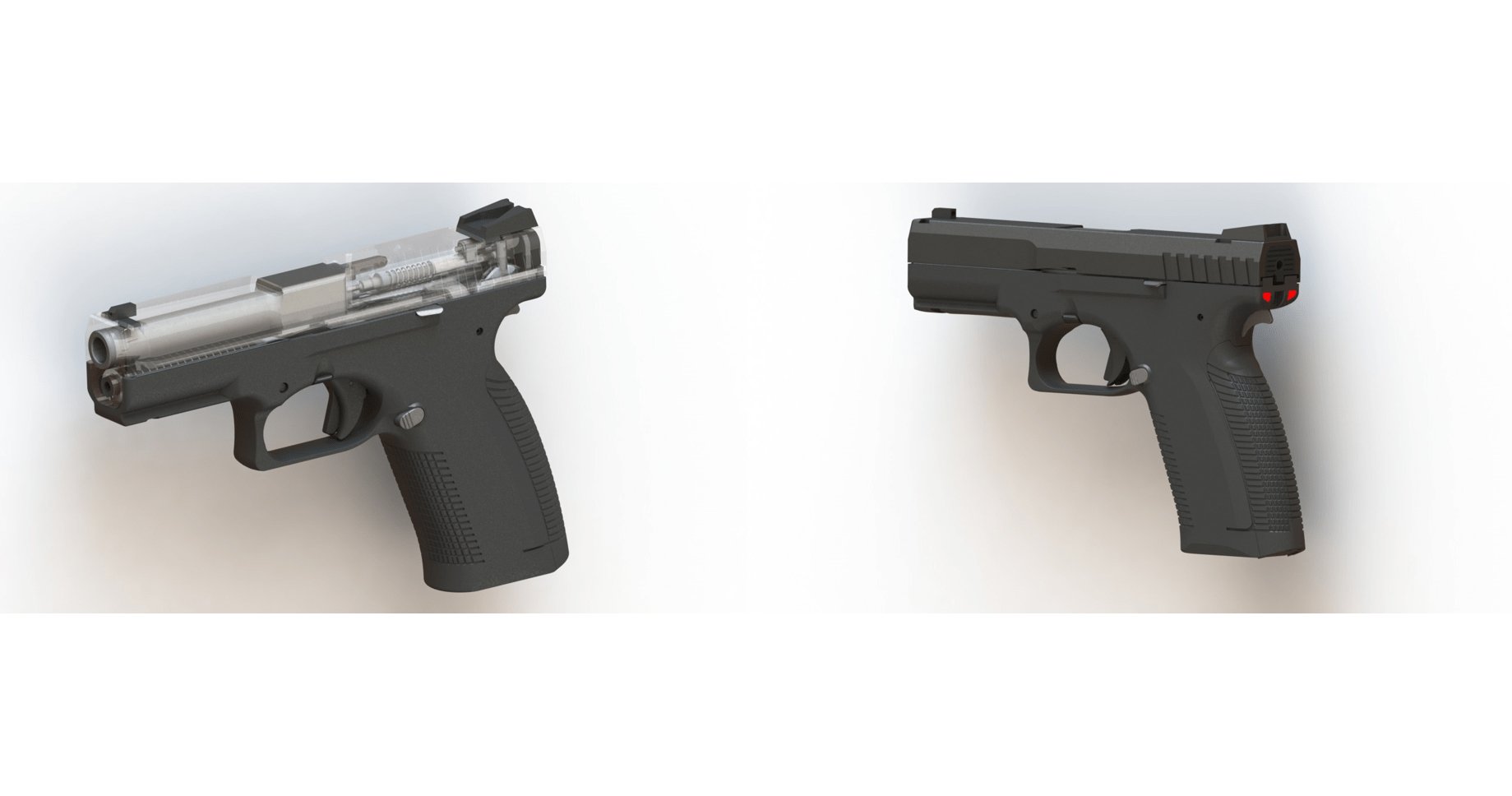The market for smart guns has been plagued by years of false starts, but a new company believes it can crack the code to getting Americans to accept personalized firearms.
The Philadelphia-based LodeStar Firearms is developing a smart handgun that will be chambered in consumer-friendly 9mm and equipped with radio frequency identification (RFID) technology designed to thwart hackers, its chief executive officer, Gareth Glaser, told The Trace. The as-yet-unnamed weapon will retail for roughly $750 — about half the price of the Armatix iP1, the most well-known smart gun — and will likely be available to purchase by 2019. LodeStar’s gun is designed by Ernst Mauch, a longtime engineer formerly of Heckler & Koch who left Armatix following disputes over the development and marketing of the iP1.

An early rendering of the LodeStar 9mm smart gun.
Glaser says the gun’s features and price will make it the first smart weapon to overcome what he acknowledges is intense wariness from firearms consumers.
“I’ve been in a lot of gun shops, and there’s a lot of skepticism,” Glaser said. “A lot of that skepticism is due to the false narrative that a smart gun won’t be reliable.”
Last year, an anonymous hacker showed that the iP1’s RFID safety mechanisms could be defeated with magnets and it could be prevented from firing with cheap signal-jamming technology. The demonstration appeared to confirm old doubts about smart guns’ susceptibility to hacking from “techno-geeks.”
Glaser said he believes the LodeStar gun’s technology will overcome those concerns. Its lock will be made of a non-magnetic material. Whereas the Armatix iP1 could receive a signal from its RFID bracelet from as far as 10 inches away from the gun, the LodeStar gun will pick up the radio chip only within three or four inches, a much tighter radius that would be harder to interfere with. Mostly, Glaser said, he believes the public has become much more familiar with this kind of technology, which is used in more and more everyday situations. “People rely on RFID for their cars now,” he said, referring to keyless ignition systems.
Smart guns have been around in one form or another since the 1970s. They use technology like RFID chips, fingerprint readers, or magnetic rings to prevent unauthorized users from discharging the weapons. Advocates believe smart guns have the potential to reduce accidental shootings by children, suicides by people who live in gun-owning households, and gun crime committed with stolen firearms. Critics are wary of relying on new technology that could fail in a life-or-death scenario, or worse, be hacked.
The best-known smart gun maker, the German-American company Armatix, came under heavy criticism after it debuted the iP1 model in 2014. The iP1 is chambered in .22-caliber — a tiny round that many considered insufficient for self-defense. The gun’s design didn’t help, either. Its sleek, futuristic aesthetic looked like it belonged on the set of “Star Trek,” not a gun dealer’s display case. The iP1 cost $1,375, double the price of a typical high-quality handgun.
The LodeStar gun will have “stopping power and better pricing,” Glaser said. According to early renderings by engineers, the gun closely resembles conventional handguns like those made by Glock or Heckler & Koch. “It’s very straightforward,” Glaser said.
But the biggest obstacle to personalized firearms has long been a 2002 New Jersey law mandating that, once smart guns are commercially available anywhere in the country, they would be the only firearms that could legally be sold in the state. The law has led to boycotts of the products in Maryland and California to avoid triggering the mandate.
That law may not be on the books much longer, however. Democrat Phil Murphy was just sworn in as governor of New Jersey. In his campaign, Murphy backed a bill that would reform the state’s smart-gun mandate to simply require firearms dealers to stock a single smart gun option, rather than replacing their entire gun stocks. Former Governor Chris Christie, a Republican, had vetoed a similar bill.
“That’s a lot weaker of an intervention,” said Glaser, who believes the change would go some way toward dispelling the association between smart guns and heavy-handed gun control efforts.
“Gun safety has become synonymous with gun control,” Glaser said, “and it needn’t be.”

